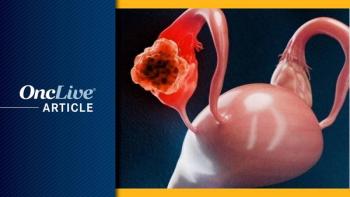
PAOLA-1 Study Surgical Subset for Ovarian Cancer
Bradley Monk, MD, FACOG, FACS: To finish up on PAOLA-1 as well, there are multiple things that we can do to help patients do better. We talked about treatment. The other thing that we can do to help patients do better is the quality of the surgery. There’s a paper that talked about the surgical subsets by [Christoph] Grimm, [MD]. Leslie, tell us about that paper.
Leslie Randall, MD, FACOG: It is another retrospective hypothesis-generating analysis. Grimm looked at the subsets of surgical outcome: neoadjuvant with interval debulking versus primary debulking surgery, with no gross residual versus residual disease. It’s interesting; this analysis almost looks like it’s all prognostic. The reason I say it almost looks all prognostic is that they didn’t show any benefit favoring any surgical group, except for the stage III patients who had upfront surgery with no gross residual disease, and it then showed potentially more benefit of the combination in that group.
As a surgeon, I was happy to see that because I’m starting to feel like there’s no reason to operate on my patients anymore. I was happy to see that.
Michael J. Birrer, MD, PhD: It’s a tough crowd.
Leslie Randall, MD, FACOG: In the other groups, there was no differential benefit. In the control arm, the median PFS [progression-free survival] for placebo group was all over the place, suggesting that these surgical groups are still mostly prognostic and not predictive of treatment effect. Interestingly, there was a similar study done, reported by Cara Matthews, [MD,] from SOLO-1, that showed that none of these subgroups mattered. The first time that we had ever seen those surgical factors not be prognostic was in SOLO-1.
Bradley Monk, MD, FACOG, FACS: The take-home message, whether it’s SOLO-1 or PAOLA-1, is that no matter what the surgical outcome is, the targeted therapy helps.
Leslie Randall, MD, FACOG: Right.
Bradley Monk, MD, FACOG, FACS: It helps the most in the primary debulking R0 [negative resection margin], right? Even if you have interval debulking, it still helps in the best prognosis, which is complete resection.
Leslie Randall, MD, FACOG: Right. I made that too complicated.
Michael J. Birrer, MD, PhD: Another way to twist that is simply to say, as our drugs get better, they’re having a bigger impact across all patients. Maybe the surgery portion of this has less of an impact.
Bradley Monk, MD, FACOG, FACS: Rob Coleman, [MD,] and I have a little talk that we’ve written and that we continue to evolve, and the title of that talk is, “Targeted Therapy Cuts Deeper Than the Knife.”
Michael J. Birrer, MD, PhD: Yes, I’ve seen that.
Bradley Monk, MD, FACOG, FACS: Go ahead, Matt, you had a comment?
Matthew Powell, MD: This challenged me because, as Shannon said earlier, our pivot point is usually, am I going to give bevacizumab even before, in cycle 1, I’m trying to decide if I am giving bevacizumab. Now that this cohort group looks like it’s a favorable population that was helped most from this dual-targeted therapy addition, I’m scratching my head, saying, “Is it everybody who needs this? Is it just those who had our previous need for bevacizumab only, is that my pivot point?” It adds more confusion the more we learn about how these trials inform us.
Bradley Monk, MD, FACOG, FACS: Bevacizumab helps everyone. It helps reduce ascites. It probably helps prolong survival in stage IV patients. The hazard ratios in the smaller volume disease patients are not different or dissimilar than the large volume disease. It’s just that the survival and the ascites move on to a greater benefit, but it still has a PFS advantage.
Transcript edited for clarity.






































